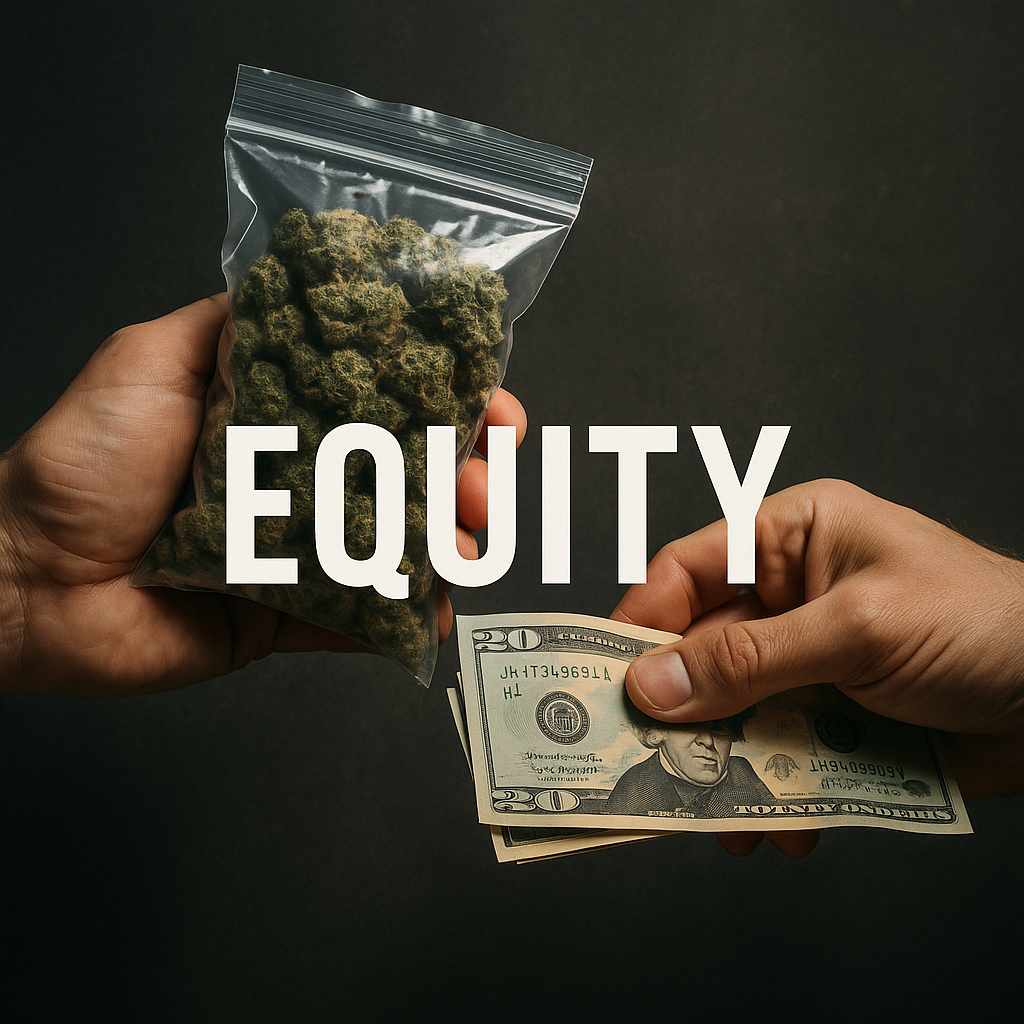The Hollow Promise of Cannabis Social Equity
Equity was promised. What we got was roleplay. Predatory partnerships, PR stunts, and broken funding pipelines turned cannabis social equity into a costume—worn for licenses, discarded for profit.

Legal cannabis was sold to the public with promises of repair and reinvestment. Legislators, regulators, and emerging corporations spoke eloquently about justice, equity, inclusion, and access. We were told that legalization would not merely end criminalization but would begin to heal its devastation—that licenses would go to those harmed by prohibition, that records would be expunged, that communities would be rebuilt.
The reality has been a masterclass in performance without substance.
Multi-State Operators (MSOs) like Acreage Holdings and Cresco Labs "partnered" with legacy operators and equity applicants to secure valuable licenses, only to quietly force them out post-approval through convoluted ownership structures and predatory management agreements. These weren't isolated incidents but standard industry practice—a way to leverage social equity for market access while ensuring traditional power dynamics remained untouched.
Press releases about hiring from impacted communities flooded media inboxes, but executive suites across the industry remained overwhelmingly white and male. Diversity existed primarily at the retail and cultivation levels—the lowest-paid, highest-turnover positions—while decision-making power and equity ownership remained concentrated exactly where they were before legalization.
Diversity and inclusion initiatives appeared with great fanfare, complete with dedicated websites and media tours. Then, at the first sign of market contraction, these same programs were quietly defunded, their staff laid off, their metrics deprioritized. They were never infrastructure—they were ornamentation, the corporate equivalent of seasonal decorations brought out when visibility was high and tucked away when budgets tightened.
Meanwhile, the few genuine social equity brands that navigated the licensing gauntlet found themselves buried in dispensary menus, given the lowest shelf placement and minimal marketing support. They became tokens—literally showcased as proof that the system works, while being systematically denied the resources needed to succeed. Their presence became alibi rather than achievement.
Perhaps most damning: while politicians and industry leaders trumpet public promises of expungement and community reinvestment, only a tiny fraction of cannabis tax dollars actually reach the communities devastated by prohibition. In Illinois, less than 3% of cannabis tax revenue has made it to community reinvestment programs. The money flows not to restoration but to general funds, law enforcement, and regulatory overhead.
This isn't reform. It's roleplay.
Equity became a costume—worn during licensing season, displayed during media interviews, and discarded once the cameras turned away. The language of justice is deployed not to pursue it, but to purchase immunity from having to deliver it.
For cannabis equity to evolve from performance to substance would require structural change: direct ownership transfers to impacted communities; binding, verifiable commitments to reinvestment; public tracking of equity outcomes over time; and a fundamental redistribution of capital, power, and opportunity.
Real equity isn't a marketing strategy or compliance exercise. It's a fundamental rethinking of who gets to build, own, and benefit from this newly legal industry. Until cannabis companies are willing to put meaningful resources behind their social justice rhetoric—to back their words with wealth and their commitments with capital—cannabis equity will remain what it largely is today: a hollow promise that looks impressive on corporate websites but delivers little meaningful change on the ground.
Corporate Cannabis is Eating Itself
MSOs didn’t bring legitimacy. They brought debt, dilution, and decades of cultural theft. Hype without heritage. Scale without soul.
This dossier lays out the full collapse: the boardroom delusions, the empty promises, and the path toward something real, rooted, and reparative.
No industry worship. No legacy erasure. Just receipts.
🧾 Every claim has a receipt. Check the source files, citations, and footnotes we weren’t supposed to find.
